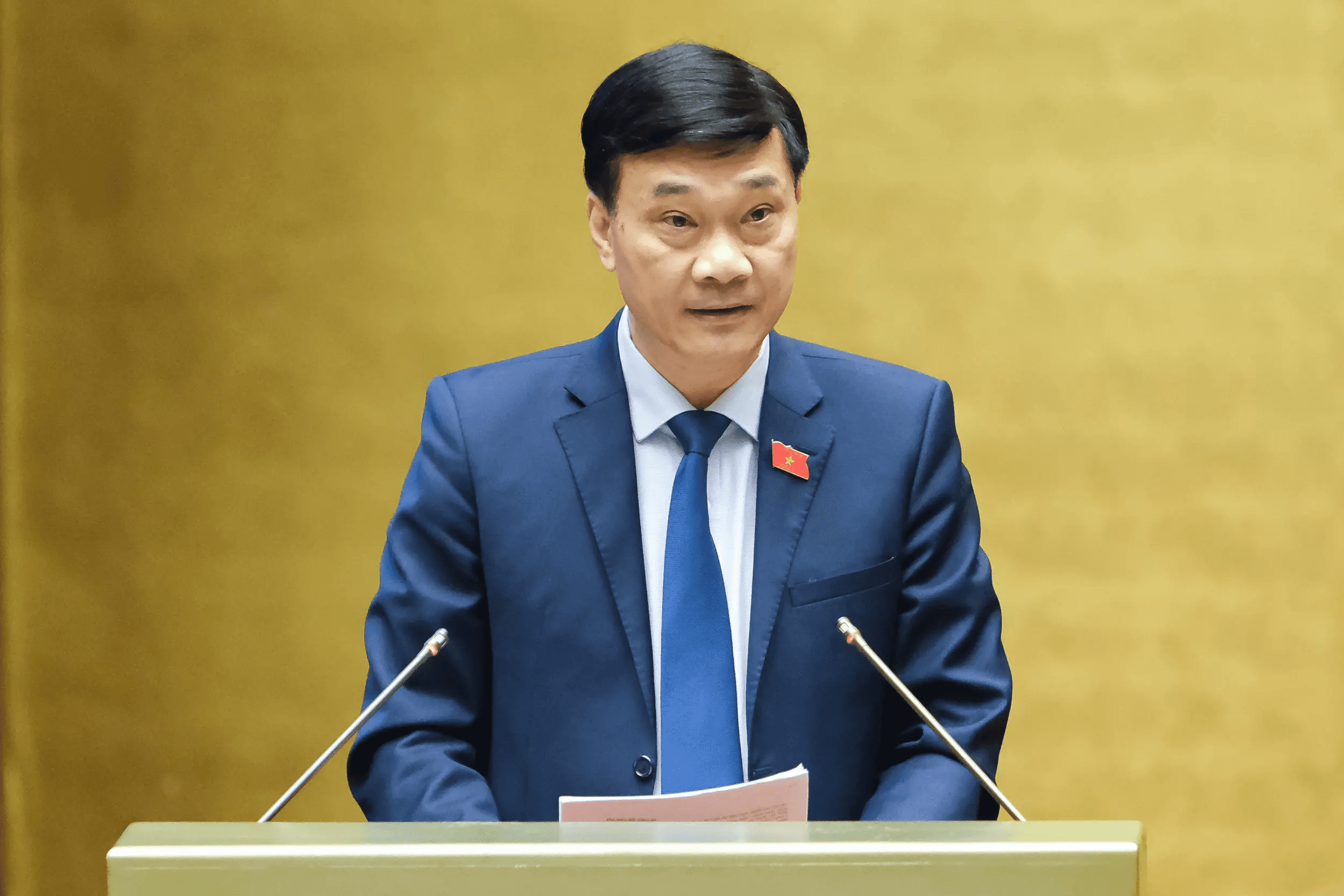
Chair of the National Assembly’s Economic Committee Vu Hong Thanh delivered a report about the supervision outcomes.
According to the supervision group, the Law on Planning was ratified in 2017, but the implementation process has encountered difficulties because of unreasonable and unclear policies.
Planning-related activities are mentioned in many legal documents (Law on Planning, Law on Urban Planning, Law on Construction, Land Law and others) which have contradictory, overlapping and unreasonable articles, thus leading to difficulties in compliance with the laws.
7/111 planning schemes approved
The work of formulation, appraisal and approval of the planning task has been basically completed.
However, only 7 out of 111 planning schemes have been approved, including national land use planning four planning schemes in transport, and Mekong Delta and Bac Giang planning.
Regarding budgeting for planning, according to the Ministry of Planning and Investment (MPI), the budget is VND4.368 trillion, including VND1,243.63 billion of capital of ministries and branches (19.67 percent has been disbursed) and VND3,124.36 billion of capital of 56 localities (36.72 percent has been disbursed).
Seven localities have not approved budgeting for planning, namely Hoa Binh, Hanoi, Bac Ninh, Binh Dinh, HCM City, Dong Nai and Long An.
The concurrent preparation of many plans and the limited quantity and quality of consulting organizations has caused difficulties in bidding and selection of consultants according to the provisions of the Bidding Law.
The number of officials and experts with professional planning qualifications joining appraisal councils is still lacking. There is also an insufficient information system and planning database, while the efficiency of coordination among agencies is not high.
These factors have affected progress and the quality of planning and approval. Some planning schemes have shown problems though they were recently approved.
The Mekong Delta development plan, for example, still doesn’t show relations between the area and HCM City and the eastern part of the southern region.
Meanwhile, four plans in the transport sector don’t show the connection of five means of transport, while important national projects in the four plans have not diverged in 5-year development periods to ensure feasibility in implementation.
The coordination and information sharing among ministries, branches and localities is also still limited. The unified national database and information system for planning has not yet been completed.
Reasons and solutions
The Law on Planning comprises of many new regulations on both the content and the planning method according to the integrated method with multi-sectoral coordination.
The organization and formulation of planning schemes under the national planning system is a new, complicated task and for the first time being implemented simultaneously at all levels and branches. This happens that the planning schemes at lower levels cannot fully elaborate the viewpoints, purposes, orientations, development plans and solutions of the planning schemes at higher levels.
The complicated developments of the Covid-19 pandemic have affected the process of planning for the 2021-2030 period. Consultancy firms could not access to the fields for surveying, researching and planning.
The Law on Planning has many new contents; therefore, the submission, compilation and examination agencies cannot anticipate the impacts, obstacles and difficulties during the deployment process, which result in unreasonable regulations causing different ways of interpretation.
The legal documents related to the planning also contain conflicting, overlapping and inadequate contents. The promulgation of documents guiding the Law on Planning is very slow, incomplete, and inconsistent.
The supervision group has proposed that the National Assembly issues a resolution on supervising the implementation of policies related to the planning and sets some solutions to remove difficulties.
Tran Thuong